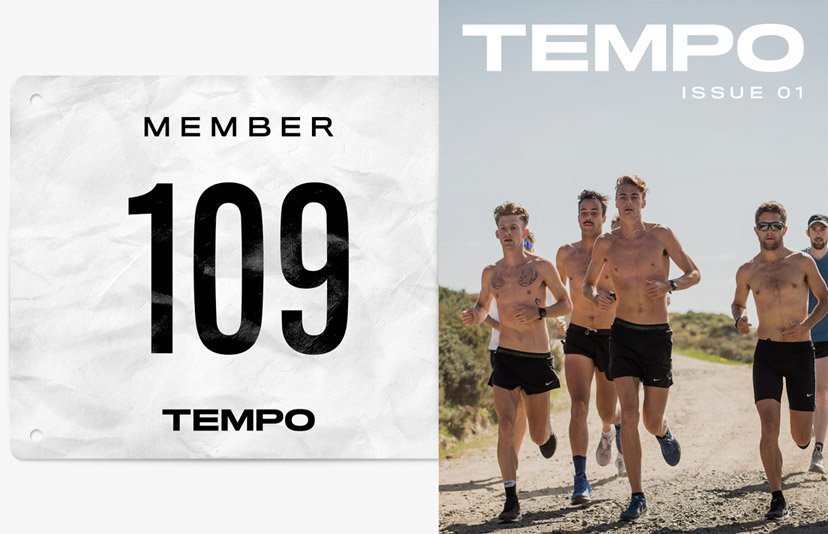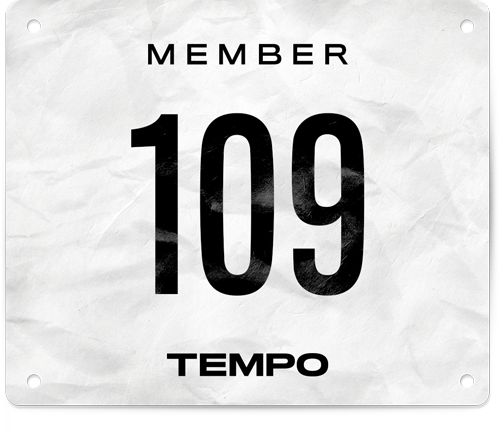Culture
Give us the Wind
Sub-zero temperatures? 4 a.m. wake up calls? Empowering the youth of tomorrow? Check, check, check.
“If you make a stronger athlete, you make a better person. They're working together to make themselves even stronger than what they thought was possible, and then their ability to give back and be a true example for what you can look up to and turn into as an adult athlete, you know, for the young girls in the city. I mean, there's not a better example.”
– Coach Robyn LaLonde
As the old adage goes: don’t meet your heroes. However, in Chicago, the Windrunners are testing that notion through not only their no-BS-it-ain’t-that-cold attitude to training, but also a dedicated, thoughtful approach to giving back to their city.
Formed in 2018, the Windrunners are a band of all-female athletes with goals beyond setting their next personal best or qualifying for the Olympic Trials Marathon. They are invested in a holistic approach to how their group interacts with its community.
“The mission of the wind runner is to put the women of Chicago on the global running stage and inspire the next generation of girls through running.” Windrunners’ Team Manager Kelce McKinney tells me. “We're not about just fast running, but even more so community involvement. That translates into our work with different service groups and young girls in the community.” McKinney’s role as Team Manager is to be the glue holding the group together and constantly pushing it to interact with their constituents in the Chicago community.
In this day and Instagram age, running crews are popping up everywhere, especially in places like New York where it feels like there are dozens. Most newer groups seem to be only inwardly focused - worried about PR's or expanding their group, so it's refreshing to hear how the Windrunners use their platform in the Chicago running scene to empower female involvement in sport.
Maeve McCartin, a Windrunner athlete, shared why she was drawn to the group, “I was immediately like, ‘Yes!’, I want to be a part of this team. It had so many great things besides just the competition side. The overall vision of wanting to be a force within the Chicago community for young female athletes.”
Joining the Windrunners isn’t as simple as showing up to a group workout, deciding it’s a nice thing to do, and keep showing up. Entry to this tight knit group, which right now sits at 11 athletes, is predicated on prior community involvement, chemistry with the team and coaching staff, as well as being able to pass muster in the workouts written by Coach Robyn LaLonde.
“The mission of the wind runner is to put the women of Chicago on the global running stage and inspire the next generation of girls through running.”
Team Manager Kelce McKinney
Albeit a buzzword that might get thrown around without proper qualification, grit is authentic to the Windrunners experience. Coach LaLonde tells me about their Tuesday track sessions starting at 5 a.m. and ending before the sun comes up. “Right now it’s dark literally as we start and as we end.” Coach LaLonde and McCartin laugh as they tell me about trying to run 5K pace during workouts last winter in dumping snow before they found an indoor track. Seriously. They were laughing about it.
“Gritty is probably the first word to describe the scene. You have to have a seriously strong ‘Why’? And then after that, you have to just grin and bear it,” Coach LaLonde explains. “Because there are some days that are just treacherous, but it's made infinitely easier by the team. So it's just a matter of getting the right group together to keep moving the dial.”
For the Windrunners, getting the right group together means more than a team of athletes willing to face snow and sleet to get through a tempo run together, it means compiling a committed group of caretakers for their community — especially young girls. One statistic LaLonde brought up was by the age of 13, girls are twice as likely to drop out of sports as boys.
“It's a matter of giving them that example to look up to,” LaLonde says. “If you roll up to a race and you are a warm and approachable force, people take notice.”
When asked about how they determine success in the group, McKinney briefly touches on the prescient fact that, of course, running success can be defined by quantitative measures like times and splits but then dives into the organizations Windunners has partnered with, like Girls in the Game and the Chicago Parks District, to build and foster relationships with the population they are most interested in serving.
“You can truly see these girls being empowered to really find their passion and to build confidence,” McKinney says. “And that’s something, when I've participated in these service projects, I've been able to see firsthand and that's the success.”
McMartin isn’t running the upcoming Chicago Marathon this year, but her fingerprints will still be all over the city during race week, and further into the fall. As part of the Mentor Miles program, McMartin is paired up with a middle-school aged female athlete who she will stick along side with during the fall cross country season. The duo will attend a United States Women National Team soccer match in the beginning of marathon week, participate in a 5K the day before the marathon, and spend some time together volunteering at aid stations during the marathon. “After the marathon, we’ll be at the mentees cross country practices and then cheer them on at their championship a few weeks after the marathon,” McMartin tells me.
Sport is a catalyst for change and, if you allow it, it will rip you from comfort zones and wash you of preconceived notions of self. Ten years ago, Coach LaLonde completed her first Ironman. She says on that day, she became a different person. “I remember with 10 kilometers to go literally kind of passing up who I thought I was, and just thinking, ‘Holy shit. I could do anything.’ Anybody that thinks that they can do anything can train themselves to do anything. There is literally no limit to what you can do.”
This message, coming from a group of determined, focused athletes and passed along to their younger counterparts of Chicago, is setting a new standard for what is possible in our communities when we look past serving ourselves and extend our reach towards a broader swath of humanity.
Wind is my least favorite element. The unwillingness of it to break; the consistency of its push; it’s not-so-subtle-at-all demand of just dealing with it and being slightly tougher than I was planning on being when I got out of bed that morning. But, of course, it’s the questions the wind asks of ourselves which make it exactly what it is: a force.
Maybe it’s time we embrace the wind.


